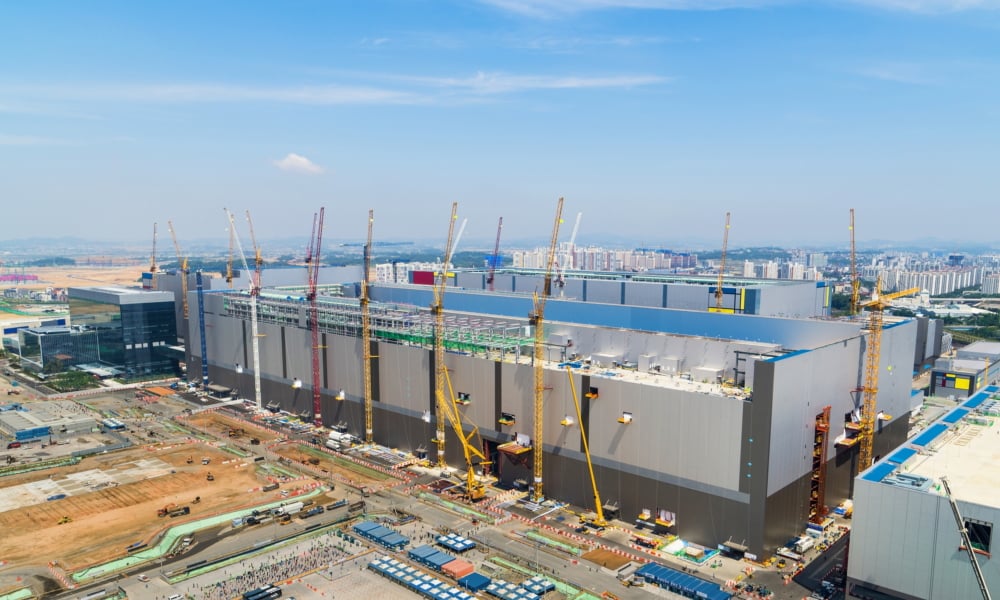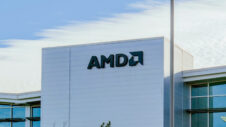Samsung is already one of the largest chip makers in the world but that's mostly due to its sheer dominance in the memory market. The company also operates a foundry business, in that it manufactures chips for companies like NVIDIA and Qualcomm that don't have their own production lines.
Over the past few years, the company has made a significant investment in catching up to TSMC. The Taiwan Semiconductor Manufacturing Co. is the largest contract chip manufacturer in the world. It accounted for more than half of the contract chipmaking market last year. Samsung only accounted for 18 percent. The company wants to change that and it now has a $116 billion plan to do just that.
Samsung wants to capture more of the $250 billion market
Samsung has decided to invest $116 billion in its next-gen chip manufacturing business so that it can catch up and possibly overtake TSMC. According to Bloomberg, a senior company executive told attendees at an invite-only event last month that Samsung will start to mass product 3nm chips in 2022. This is the first time that Samsung has revealed its 3nm mass production target.
Park Jae-hong, Samsung's executive vice president of foundry design platform development, told attendees that the company is already developing initial design tools with its partners. This goes to show that Samsung wants to ensure that its 3nm process is ready for clients around the same time that TSMC expects its 3nm process to be ready in 2022.
TSMC expects to offer volume production of 3nm chips to its clients by the second half of 2022. Samsung has a similar timeline but it's taking a different technological approach in hopes of outperforming TSMC. Samsung's 3nm process will utilize Gate-All-Around tech which many in the industry believe to be game-changing. It allows for more precise current flows across channels, reduces power consumption and chip areas. TSMC will be using the more established FinFET tech for its 3nm lines. TSMC is expected to utilize the GAA technology for its 2nm process in 2024 but some analysts expect that it could be moved up to the second half of 2023.
Samsung certainly wants to become the chip manufacturer of choice for leading companies like Apple and AMD that currently get the majority of their chips made from TSMC. That's why it's ramping up investments and pushing ahead with new technologies to gain a competitive edge for 3nm chips. The contract chip manufacturing market is worth $250 billion so there's a lot of potential for Samsung to grow. That's one of the reasons why vice chairman and heir Lee Jae-yong is said to be taking such a close interest in the matter.
This intense focus on expanding the foundry business has already started paying dividends. A company official confirmed to the scribe that Samsung has increased its roster of foundry clients by 30 percent in 2019. NVIDIA and IBM are among a handful of major companies that are getting advanced logic chips made by Samsung. Qualcomm is believed to have awarded its entire Snapdragon 875 production contract to Samsung. It was also confirmed that Samsung has won enough orders from major companies to keep its most advanced 5nm lines occupied for the next few years.
Despite its gains, TSMC continues to maintain a dominant position. The demand for its 5nm process is so high that it can't ramp up production capacity enough to meet it. Analysts expect this is why Samsung might win some orders for Apple's new 5nm M1 chip for Macs. For foundry customers, this intense competition between TSMC and Samsung has an obvious benefit. Competition helps bring prices down. They also won't have to put all of their proverbial eggs in one basket by splitting production between two manufacturers as a hedge against any unforeseen supply issues.
It remains to be seen whether the yields on Samsung's 3nm GAA process are sufficient to meet demand. That's one concern that some analysts have. The company is confident that it has a competitive edge as it makes both chips and the devices that they're used for, such as its Galaxy smartphones. This puts it in a better position to foresee the engineering requirements of its customers. Samsung's ability to package memory and logic chips in a single module is also a major plus.
Evidently, Samsung is very serious about taking the fight to TSMC. It has the deep pockets needed to do that and over the past few years, it has shown an intense desire to take away more market share from its rival. With a $116 billion war chest at its disposal, this is perhaps its best shot at achieving that goal.





